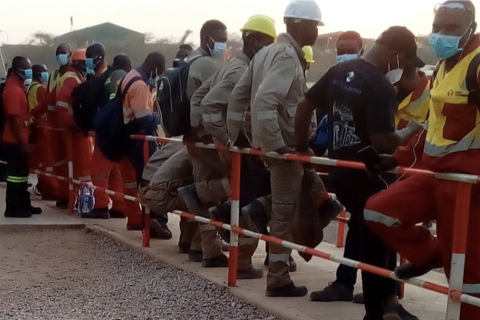Topics and Regions
Rick has over 40 years experience working in the land sector in Southern Africa. He is part of the Land Portal knowledge engagement team working to research and develop knowledge resources including data stories, blogs and in-depth country profiles for Southern, Central and Eastern Africa.
Rick is also a Senior Research Associate with Phuhlisani NPC - a South African land sector NGO and the curator of specialist Southern African land news and analysis website https://knowledgebase.land
He tweets on land related issues Twitter account https://twitter.com/KnowledgebaseL
He has a PhD from the University of Cape Town. His research in Langa, Cape Town features as the central case study in a recent book Urban Planning in the Global South (2018), co-authored with the late Vanessa Watson, which examines the on-going contestations over land and housing in the rapidly growing cities of the global South.
Details
Location
Contributions
Displaying 61 - 70 of 464Are livestock always bad for the planet?
Urgent climate challenges have triggered calls for radical, widespread changes in what we eat, pushing for the drastic reduction if not elimination of animal-source foods from our diets. But high-profile debates, based on patchy evidence, are failing to differentiate between varied landscapes, environments and production methods. Relatively lowimpact, extensive livestock production, such as pastoralism, is being lumped in with industrial systems in the conversation about the future of food.
Livestock, methane and climate change: the politics of global assessments
The relationship between livestock production and climate change is the subject of hot debate, with arguments for major shifts in diets and a reduction in livestockproduction. This Perspective examines how global assessments of livestock-derived methane emissions are framed, identifying assumptions and data gaps that influence standard life-cycle analysis approaches.
Total’s Congo offsetting project ‘snatched our land’
Energy transition minerals and their intersection with land-connected peoples
Rapidly transitioning the global energy system to renewables is considered necessary to combat climate change. Current estimates suggest that at least 30 energy transition minerals and metals (ETMs) form the material base for the energy transition. The inventory of ETMs indicates a high level of intersectionality with territories less impacted by the historic forces of industrialization.




